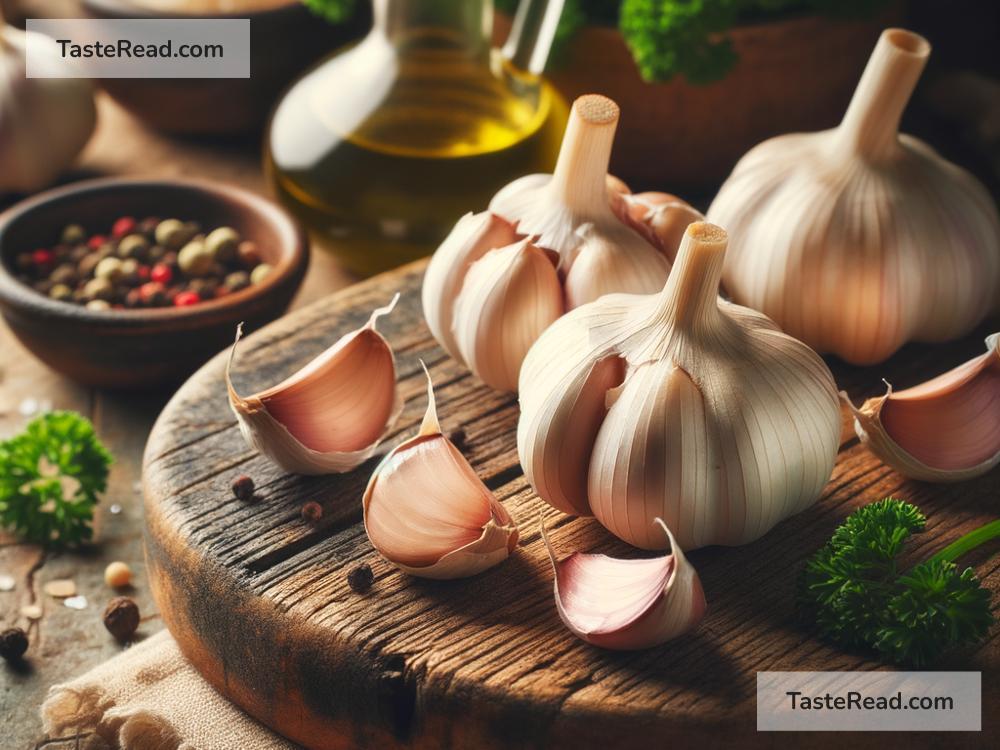The Truth About Garlic and Its Pungent Aroma
Garlic is one of the most versatile and beloved ingredients in the kitchen. It’s a staple in cuisines all around the world, from Italian pasta sauces to Indian curries. Many of us enjoy its bold flavor, but there’s one thing about garlic that divides opinion—the strong smell. Whether you love or hate it, garlic’s notorious aroma is hard to ignore. But why does garlic have such a pungent smell? And is it really as bad as some people claim? Let’s dive into the truth about garlic and its aromatic nature.
Why Does Garlic Smell So Strong?
Garlic’s characteristic smell comes from a chemical compound called allicin. When garlic is whole and uncut, it doesn’t smell much at all. But as soon as you chop, crush, or mince garlic, it releases enzymes that produce allicin. This compound is responsible for both the smell and much of the flavor we associate with garlic. The more you chop garlic, the stronger its aroma becomes. That’s why finely minced garlic often smells and tastes stronger than whole cloves.
Interestingly, the pungent smell is actually garlic’s natural defense mechanism. In the wild, garlic produces allicin to protect itself from pests and fungi. The strong smell repels insects and harmful organisms, helping the plant survive. So, every time you cut into a clove of garlic, you’re triggering its built-in survival instinct!
Why Does Garlic Make Your Breath Smell?
Garlic doesn’t just smell strong in the kitchen—it can leave a lasting impression on your breath, too. Ever heard of “garlic breath”? It happens because some of the sulfur compounds in garlic are absorbed into your bloodstream after you eat it. These compounds are then released when you exhale, which is why your breath might smell garlicky for hours after your meal.
But don’t worry—there are ways to reduce garlic breath! Chewing on fresh herbs like parsley, mint, or even raw apple slices can help neutralize the smell. Drinking green tea or milk has also been shown to minimize garlic odor. Of course, these remedies won’t make the smell disappear completely, but they can help tone it down.
The Health Benefits Behind the Aroma
While garlic’s smell might make some people shy away, it’s actually a sign of its impressive health benefits. Allicin, the compound responsible for garlic’s aroma, is also packed with powerful medicinal properties. Garlic has been used for centuries as a natural remedy for various ailments. Modern science backs up many of these traditional uses.
Here are just a few of the health benefits linked to garlic:
-
Boosts Your Immune System: Garlic is known for its ability to fight off bacteria, viruses, and fungi. Some studies suggest that eating garlic can help your body ward off common colds and flu.
-
Supports Heart Health: Garlic has been shown to lower blood pressure and improve cholesterol levels, both of which contribute to better heart health.
-
Rich in Antioxidants: Garlic contains antioxidants that help protect your body from free radicals—unstable molecules that can cause damage to cells and lead to aging and disease.
-
May Fight Cancer: Some research has found that garlic may play a role in reducing the risk of certain types of cancer, thanks to its anti-inflammatory and anti-tumor properties.
These benefits show that garlic’s pungent smell isn’t just for show—behind the strong aroma lies a powerful superfood that can help your body stay healthy.
Learning to Love the Aroma
Even if you’re not a fan of garlic’s smell, it’s hard to argue with its flavor. A little garlic goes a long way in transforming recipes, bringing depth and complexity to dishes. Its aroma plays a key role in this process. Though the smell may seem overpowering at first, it mellows out during cooking. When roasted or sautéed, garlic becomes sweet and nutty, losing some of its raw pungency.
The key to loving garlic is knowing how to use it. If you’re making something like garlic bread or pasta, crushed or minced garlic works best because it releases more flavor. For soups or stews, whole cloves can add a subtle taste without overpowering the dish. And if you’re worried about the smell lingering on your hands, try rubbing them with stainless steel—many chefs swear this can help remove odors!
Garlic in Everyday Life
Garlic’s pungent aroma has earned it some nicknames over the years, like “The Stinking Rose.” But the truth is, garlic has more to offer than its smell. Whether you’re using it to boost the flavor of your cooking or as a natural remedy, garlic is an ingredient worth celebrating.
The next time you reach for a bulb of garlic, take a moment to appreciate its unique qualities. Behind the strong smell is a fascinating plant with centuries of history, countless health benefits, and a flavor that’s hard to beat. So don’t let the aroma scare you away—garlic might just be the hero of your kitchen!


